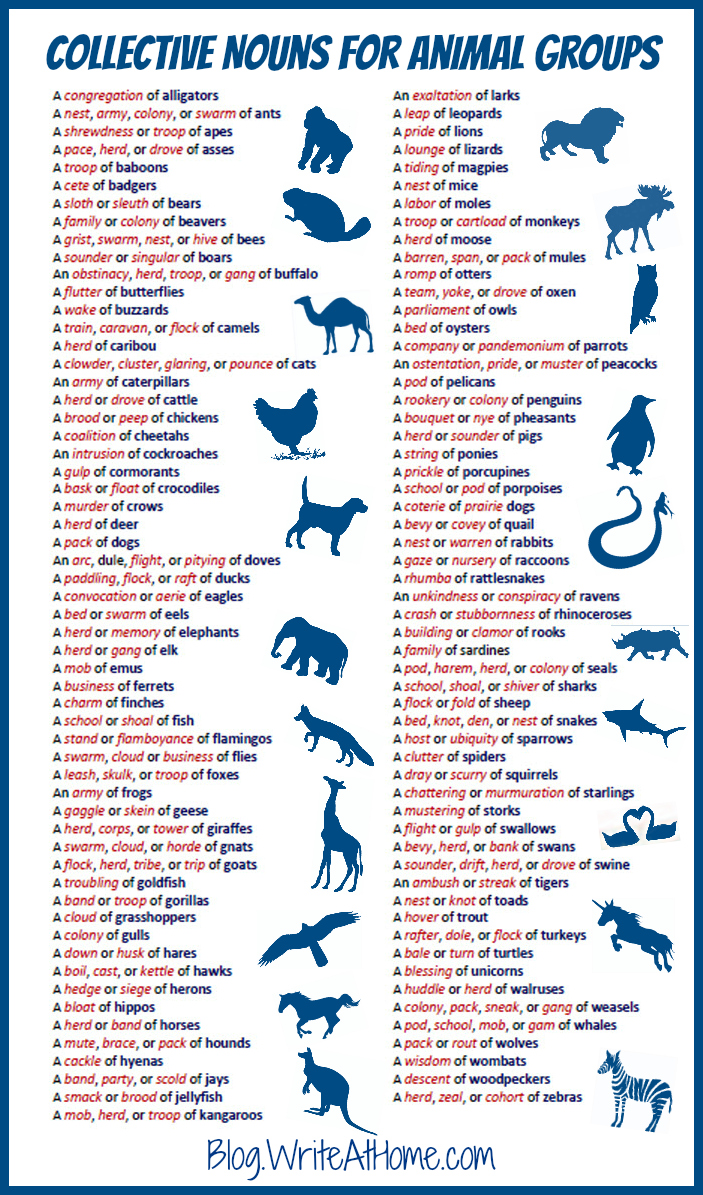Animals General term for apes: wisdom. Badger: Sete. Bats: colonies, clouds, or camping. Bear: Sloth or detective. Bees: A flock. Buffalo: Gang or stubborn. Camel: Caravan. Cats: Clouder or Glare; Kittens: Garbage or Kindle; Wild Cats: Destruction. Collective nouns for invertebrates (including insects, soft animals, etc.) Collective nouns for animals Ali army, colonies, nests, swarms (flying) bees, nest boxes, swarm larvae Army clambeds and 18 more rows. November 17, 2021 Baby sharks are called puppies and baby kangaroos are called Joey. A group of camels is a herd. Below is a large list of all the correct names and terms for different groups of animals, their young animals, and the different terms for male and female animals. You can also see a glossary of baby animals and a list of animal groups. The word "parcel" commonly used for birds is a commonly known collective noun. "Parcel" is another term for a flock of birds and is often used in daily news and publications that may refer to birds.
Collective Nouns of Animal Groups Animal Names Collective Nouns Words / Group Names Crocodile and Crocodile Basque, Congregation Alpaca Flock Ali Army, Colony, Nest, Flock Antelope Flock Further 78 rows December 2021 5th
What is the collective noun of animals?
The name of the animal. Collective noun word / group name. With a crocodile. Crocodile. Sunbathing, congregation. alpaca. Flock. ant. Armies, colonies, nests, herds.
What is a group of young animals?
The collective nouns used in young animals are: Hina – A group of young birds born all at the same time (such as chickens) This is also a fairly common collective noun that may be used. In different groups of animals: a colony – a group of animals and other creatures that live or grow in one place
How do you use the collective noun of birds?
The collective nouns used for birds are: Flying – A group of similar birds flying together Next, some nouns commonly used in insects: Clouds – Large groups (such as insects)) Moving together in the air
None What is the collective noun of vertebrates?
Collective nouns of invertebrates (including insects, soft animals, etc.) Animal collective nouns Ants Army, colonies, nests, swarms (flying) bees, nest boxes, swarm larvae Army clambeds 18 more rows .. .

Below you will find two helpful answers on a similar topic. 👇
Do crabs have 3 pairs of legs?What are the 21 basic mammal groups?
